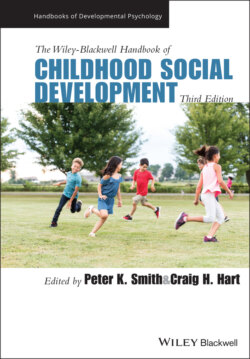Читать книгу The Wiley-Blackwell Handbook of Childhood Social Development - Группа авторов - Страница 34
Problems in the peer system
ОглавлениеExtensive research was undertaken to elucidate the developmental consequences of adverse peer relations during childhood. The impetus, in large part, stemmed from early longitudinal findings (Ladd, 2005) indicating that poor peer relations in childhood were one of the best predictors of adult social and mental health difficulties. Three peer “adversities” received the most empirical scrutiny: peer group rejection, peer exclusion, and peer victimization.
Research on peer rejection focused on children who were disliked by the majority of members of their peer group. Longitudinal findings revealed that rejection by one’s peers, especially when chronic, increased children’s risk for adverse interpersonal and developmental outcomes (Ladd, 2005). Peer exclusion was investigated by identifying and following children who were marginalized by peers (e.g., actively ignored, isolated from interactions and activities). Like rejection, peer exclusion during childhood was linked with unfavorable social and developmental consequences (Buhs et al., 2006). Evidence gathered on peer victimization (e.g., peer maltreatment) revealed that it often had detrimental and, in some instances, life‐threatening consequences. Evidence related to this peer adversity is reviewed in a subsequent section.
